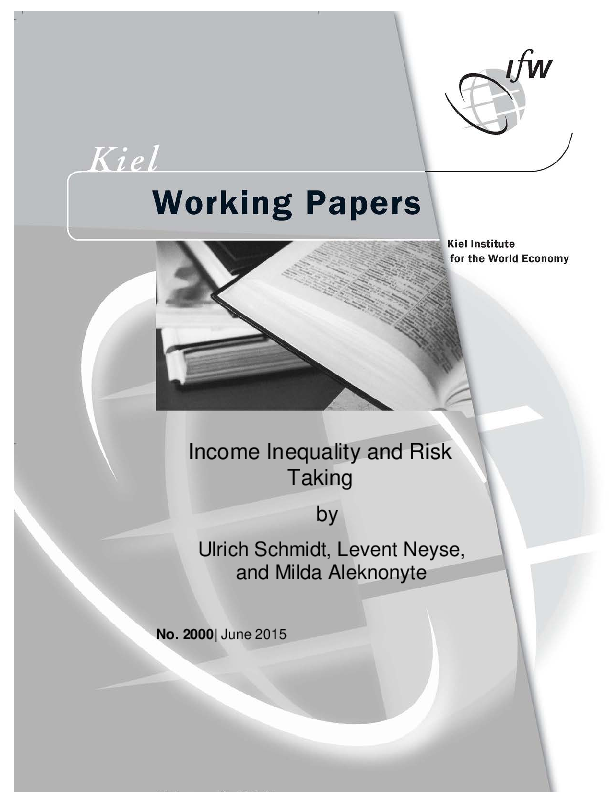Autoren
Erscheinungsdatum
JEL Classification
Schlagworte
Standard economic theory assumes that individual risk taking decisions are independent from the social context. Recent experimental evidence however shows that the income of peers has a systematic impact on observed degrees of risk aversion. In particular, subjects strive for balance in the sense that they take higher risks if this gives them the chance to break even with their peers. The present paper is, to the best of our knowledge, the first systematic analysis of income inequality and risk taking. We perform a real effort field experiment where inequality is introduced to different wage rates. After the effort phase subjects can invest (part of) their salary into a risky asset. Besides the above mentioned possibility of higher risk taking of low-wage individuals to break even with high-wage individuals, risk taking can be influenced by an income effect consistent with e.g. decreasing absolute risk aversion and a house money effect of high- wage individuals. Our results show that the dominant impact of inequality on risk taking is what can be termed a social house money effect: high-wage individuals take higher risks than low- wage individuals only if they are aware of the inequality in wages.







